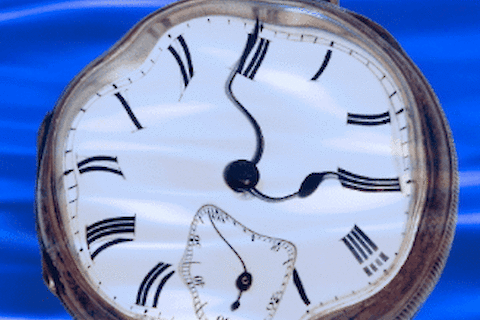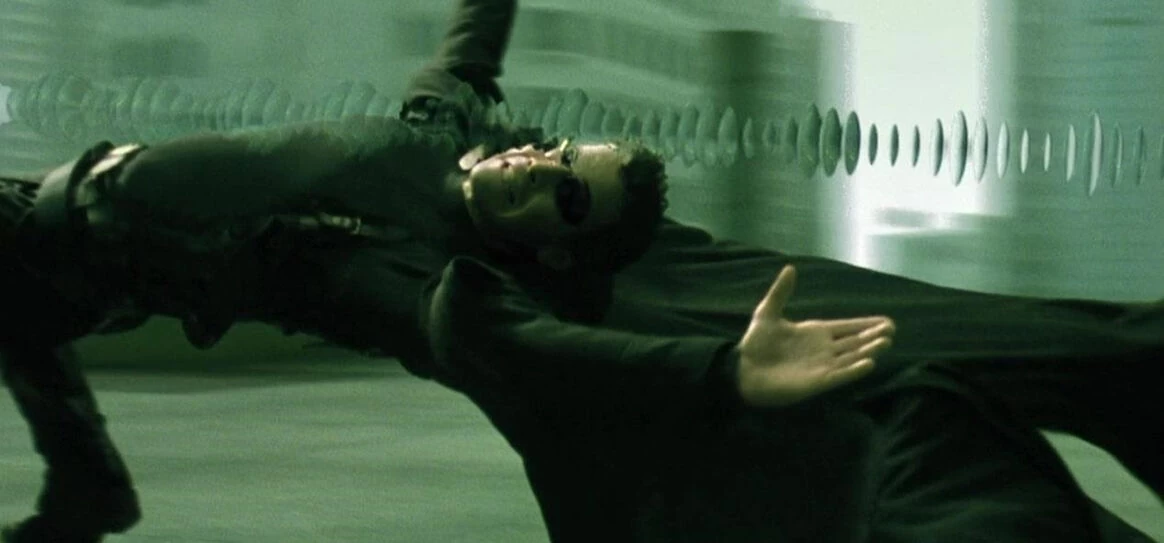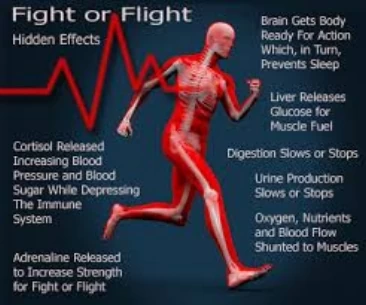

Tachypsychia, fight or flight and the paranormal
Time is one of those interesting concepts, especially when it comes to the paranormal. Does time work differently in other realms? If there is an afterlife, does time stand still there? Is time relative? Are our paranormal experiences really just a form of time slip where we are interacting with our past or future selves but the physical world can't keep up? There is so much to debate. One of the concepts when it comes to time is that many people feel that time behaves differently when they have a paranormal experience. It is often attributed to UFO encounters, but many will tell you that when they feel they are interacting with a spirit, that again time behaves differently. They believe it is slower. One experience I had several years ago was that I almost felt like I was slipping in and out of time from the present to the past. I felt like I was seeing my surroundings as they would have been 100 years prior. An abandoned gaol suddenly was bustling with prisoners in period clothing. While I was there at night, when I saw the past it was day time. When I was walking, I felt like I was walking in slow motion. At the time, I put it down to my overactive imagination. Maybe it was, or maybe it was something else, maybe it was as some say was someone 'showing' me something. Nothing like that has ever happened to me again. The slow-motion part however is something that stuck with me because I have heard similar experiences from many people, When they are in the thick of what they believe is a paranormal experience, I have heard them use phrases such as 'slow motion' or 'time slowing down'. Some even claim they lose time. Not just a few minutes, but hours. What makes these experiences difficult to explain is that physical time is obviously not slowing down. It is more a person's perception has changed for whatever reason. So why is a person experiencing time in a different way? Is there something paranormal influencing them or is it just the way our brain is perceiving a situation? While there is much we could theorise about on the paranormal side, we must entertain that it could be what is called tachypsychia.

Image Source: slashfilm.com
What is tachypsychia?
Tachypsychia is also dubbed as the Matrix Effect if you need a visual comparison. In certain situations, people feel like time has slowed down or that the world is in slow motion, just like in the movie the matrix. In fact, many people refer to it as a 'glitch in the matrix'. There is a community of people that believe we are living in a type of simulation just like in the matrix and that these time glitches are evidence of that. The probable reason behind this, however, is a neurological condition called tachypsychia. It is triggered most commonly in situations where the brain feels like a person is in danger. Physical time does not slow down, just a person's perception of it. It is a part of the body's fight or flight response.
Fight or flight
When your brain feels like you are in some sort of danger where it feels that you are at risk of harm or attack, it goes into what is called 'hyper arousal' or 'acute stress response'. It is otherwise referred to as fight or flight mode. When your brain identifies a threat, it releases epinephrine, (otherwise known as adrenaline) which prepares your body to either run for your life or to stay and confront and fight the threat in front of you. This release of adrenaline allows the body to release extra glucose into the bloodstream raising our blood sugar level for a burst of energy. It allows the bronchial passages to expand meaning we can get more air. Our pupils dilate creating what is referred to as tunnel vision meaning you focus in on a particular area however you cannot see out of the corner of your eye - only what is in front of you. We all have different fears and different tolerance levels which is why this mode is extremely personal. What may set one person off, may not bother another person at all. It all comes down to our brains. Some people will stand and confront the fear ready to fight and your body has the adrenaline ready with extra energy and strength to help you do so. Others will instinctively run away, and again they have the extra energy and lots of oxygen to help them do that. It all happens within a split second and it is an automatic response your brain makes on your behalf. It is not a conscious decision, it is a reaction. It is something that it is triggered when the brain feels you are at threat. It may be a very real physical threat or it could even be imaginary. So while you are not seeing it, maybe you are feeling it. Either way, your body is reacting.
While this has been researched by having people put in situations such as freefalling from a significant height onto a safety net, it has also been replicated by using visuals such as a circle on a screen to demonstrate that it doesn't need to be a real physical threat.
We used prospective duration judgments within and across sensory modalities to examine the effect of stimulus predictability and feature change on the perception of duration. First, we found robust distortions of perceived duration in auditory, visual and auditory-visual presentations despite the predictability of the feature changes in the stimuli. For example, a looming disc embedded in a series of steady discs led to time dilation, whereas a steady disc embedded in a series of looming discs led to time compression. Second, we addressed whether visual (auditory) inputs could alter the perception of duration of auditory (visual) inputs. When participants were presented with incongruent audio-visual stimuli, the perceived duration of auditory events could be shortened or lengthened by the presence of conflicting visual information; however, the perceived duration of visual events was seldom distorted by the presence of auditory information and was never perceived shorter than their actual durations.
These results support the existence of multisensory interactions in the perception of duration and, importantly, suggest that vision can modify auditory temporal perception in a pure timing task. Insofar as distortions in subjective duration can neither be accounted for by the unpredictability of an auditory, visual or auditory-visual event, we propose that it is the intrinsic features of the stimulus that critically affect subjective time distortions.
https://journals.plos.org/plosone/article?id=10.1371/journal.pone.0001437
It is also important to remember that what goes up must come down. After the episode is finished, your body does what is called an adrenaline dump which can cause a person to become confused and extremely tired. A lot of these traits may seem familar. Many of them are also seen on a paranormal investigation or reported from a person who has had what they believe is a paranormal experience.

Image Source: turningwithin.org
Could this be mistaken for paranormal experiences?
Everything that a person experiences on a paranormal investigation or even in everyday life is extremely personal and individual. What is confronting and scary to one person is nothing to another person. We all respond to situations in different ways. I can't tell you how many times I have heard stories of strong-looking confident people walking into a paranormal investigation and being the ones who literally run out screaming because they are so scared. We all have different tolerance levels. It means that when it comes to the fight or flight response when you have two people standing next to each other confronted with the same threat, one may go into fight mode, while the other runs and goes into flight mode. It is not a conscious decision the person makes. Their body has already made that decision for them. What we know about this response means that it does not have to be a physical threat in front of us. It could be something we see, something we hear or even something we ourselves imagine. It would be very easy for a person to be subjected to this on a paranormal investigation. Already your senses are heightened, especially if you are investigating in the dark. If you are in a location that is not familiar to you, you could be on edge. Fear levels could be heaightened. A loud bang of a door closing unexpectedly or seeing a light or shadow that you feel is rushing toward you would be enough for your body to trigger this kind of response.
When it comes to tachypsychia, aside from time apparently slowing down, a person can also experience spontaneous colour blindness which only lasts for as long as the tachypsychia episode. This means you may see colours in a different way again messing with how you are perceiving the environment around you. I have read on Reddit forums on this very subject that when people have had an episode that they perceive what appear to be balls of red light or flashes of white light appearing - again something many associate with being paranormal. In these situations, however, the people involved were not experiencing something paranormal, they were recounting their experiences with tachypsychia. People also report short-term memory loss, decreased coordination, and may even struggle to properly communicate. Interestingly, when the episode has finished and the adrenaline dump occurs, the hormonal overload means it is common for a person to become overly emotional for what they feel is for no reason. It often results in them suddenly feeling drained of energy and crying. I know I have witnessed this happen on many occasions with people on a paranormal investigation that feel they have encountered a spirit. When they are so emotional and cannot explain why often people believe that it is a spirit projecting this emotion onto them. The extreme fatigue is often associated with a spirit draining their energy. While these are possibilities we cannot ignore the possibility that while it could be paranormal, it could also be a part of the way our body is reacting to the environment around us.
The best way to try and tackle fight or flight mode is to condition yourself. The more you investigate the paranormal for example, the more conditioned to your surroundings you become. For example, when you first goto a location, you may be too scared to even walk into room without a light on. Eventually, you become so used to your surroundings you can sit in a dark room all night without being bothered. Avoid situations where you are knowingly inducing an element of fear. You don't have to investigate in the dark for example. You can turn the lights on and still experience something. You can investigate during the day. If you lock yourself in a morgue chiller for example, it would not really be paranormal for a person to experience extreme levels of fear. Look at things in context. Countering the adrenaline dump that follows is also possible by using simple breathing exercises. More spiritual people have grounding exercises they do which when you think about it is really the same kind of thing. While on a spiritual level they may be grounding themselves, a lot of it is focusing and slowing down their breathing and heart rate to relax the body. Keeping yourself relaxed or grounded is also a way to keep the fear levels in check.
It is very easy to let the adrenaline take hold when you are searching for the paranormal. Just remember that you are not always in control of how your body reacts to what is happening around you. What you could be experiencing may just be your body's response to an unknown threat. Of course, the question then becomes, if we are searching for the paranormal when this happens, what unseen fear was our body reacting to in the first place?
References
https://psychology.wikia.org/wiki/Tachypsychia
https://www.psychologytoday.com/us/blog/sense-time/201707/the-matrix-effect-when-time-slows-down
http://journal.frontiersin.org/article/10.3389/fpsyg.2012.00196/full
https://journals.plos.org/plosone/article?id=10.1371/journal.pone.0001437
https://handwiki.org/wiki/Physics:Tachypsychia
https://www.verywellmind.com/what-is-the-fight-or-flight-response-2795194
If you enjoy LLIFS, consider buying me a book (otherwise known as buy me a coffee but I don't drink coffee and I LOVE books). Your donation helps to fund the LLIFS website so everyone can continue to access great paranormal content and resources for FREE!

Top pages with similar subjects
Don't forget to follow the Facebook page for regular updates
Join the mailing list to receive weekly updates of NEW articles. Never miss an article again!
Buy the latest and past issues Haunted Magazine
Check out the books written by LLIFS